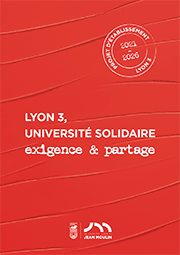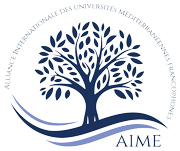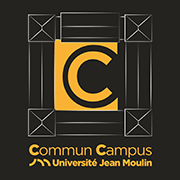AccueilRechercheProgrammes et productions scientifiquesThèsesThèses soutenuesThèses soutenues - 2006-2021Thèses soutenues - 2019
-
Partager cette page
- Recherche,
GINI Nicoletta
Ludicium et inventio dans la pensée de Michel de Montaigne et Francis Bacon
Publié le 17 février 2021 – Mis à jour le 17 février 2021
Thèse en Philosophie, soutenue le 11 octobre 2019.
Entre l’Humanisme et la Renaissance, la réflexion sur la méthode concerne la structure logique des savoirs, les pouvoirs de la raison et de l’esprit humain.Michel de Montaigne met en jeu l’idée de la raison comme outil d’excellence pour la connaissance et, dans la forme des Essais, il utilise une nouvelle écriture qui est aussi une méthode fondée sur la fragmentation et sur la recherche jamais achevée. La lecture de ces thèmes dans les ?uvres de Francis Bacon conduit ma recherche, dans le but d'analyser les diverses conclusions d’une critique répandue à la fin de la Renaissance et au début de l'époque moderne. La réforme épistémologique et la nouvelle théorétique sont les conséquences d’une nouvelle anthropologie. La critique du XXème siècle, surtout le texte de Pierre Villey, Montaigne et Bacon, avait suggéré la possibilité que les deux auteurs pouvaient se rapprocher dans les correspondances entre les Essais et les Essayes et les ?uvres sur la méthode, la théorie des idoles et la pensée inductive. Dans le but de circonscrire le sujet, on a identifié deux éléments qui nous ont permis de repérer une tradition commune à Montaigne et Bacon: les catégories d’?invention? et de ?jugement? ont le sens typique de la rhétorique classique, mais prennent aussi le sens des facultés de l’esprit humain et des phases de la méthode. La première partie de ma thèse est consacrée à l’analyse de la traduction et de la diffusion des Essais en Angleterre au début du XVIIème siècle. L’histoire de la traduction de l’?uvre de Montaigne par John Florio a indiqué le chimin pour le développement de la recherche, car démontre qu'à l’époque de Bacon, l’intérêt pour Montaigne s'oriente vers sa proposition pédagogique pour l’institution du gentleman par la ?civil conversazione?. Dans la deuxième partie, les catégories d’invention et jugement sont recherchées comme facultés de l’esprit humain, par rapport à leur développement dans le contexte éducatif. Cette réflexion se développe chez les auteurs de l’Humanisme européen, que Montaigne et Bacon connaissent et auxquels ils font référence afin de situer l’éducation dans un horizon politique. Institution et pédagogie deviennent la clé pour réformer la société.La troisième partie analyse la liaison entre la particularité de ces facultés et la conception anthropologique qui détermine aussi la structure du niveau épistémologique. Invention et jugement sont les catégories par lesquelles l’esprit rencontre le monde et en produit l’image. Il s’agit d’une idée très moderne: l’esprit humain ne peut pas construire une image précise du monde, car il est comme un ?miroir enchanté? dans lequel les choses se reflètent de manière trompeuse, déformées par les influences biologiques, culturelles et historiques qui déterminent l’homme. L’imagination sera très importante dans la structure de la connaissance. La quatrième partie est consacrée à la science nouvelle. D’abord, on rappelle l’?uvre de Rudolph Agricola et de Pierre de La Ramée qui lient la dialectique et la rhétorique à l’activité du jugement et à la construction du savoir. En fait, dans un univers ondoyant et divers, la méthode de l’induction se révèle adaptée à une recherche qui ne vise plus à la vérité éternelle, mais à l’action sur la réalité et sur la nature. L’image devient le point de départ de toute connaissance. La logique de la comparaison permet de faire face à la variété de la nature, de découvrir les liaisons entre les choses, et construire l’image du monde fondée sur les correspondances. Enfin, la dernière partie concerne le refus de l’induction classique par Montaigne et Bacon, car il s’agit d’une méthode qui ne pose pas le problème de la corruption de l’esprit humaine, et ne fonctionne pas dans l’habitude de croire à la constance de l’ordre naturel des choses. Les deux partagent l’urgence d’analyser la différence, plus que la similarité.
Mots-clés : Méthode, Rhétorique, Induction.
Inventio and iudicium in the reasoning of Michel de Montaigne and Francis Bacon A long look at method between Humanism and Renaissance disputes not only scholastic-level knowledge, but also the potential of reason and the human mind. Michel de Montaigne criticises reason as a tool of knowledge par excellence while concurrently seeming to take up writing in the form of his Essais also as method, founded on fragmentation and constant research. Francis Bacon's interpretation of these matters in his works gives rise to certain suggestions which motivate this examination, to the ends of investigating the different results of a shared critique at the fall of the Renaissance and the dawn of modern times. Critique at the beginning of the 1900s, and, in particular, the article Montaigne et Bacon by Pierre Villey, suggested the charming possibility that the relationship between the two authors was to be sought not in the more obvious correspondence between the Essais and the Essays, but rather in the works on method, in the Baconian theory of idols and in inductive reasoning. In order to define a matter with such vague outlines, two elements were identified which immediately allowed for dusting off a tradition which both authors were well familiar with. References to "invention" and "justice" are found in their works, both codified by classic rhetoric, and as a faculty of the human mind, and in method in the European Humanism pedagogic works. The first chapter is thus dedicated to analysing the translation and diffusion of Montaigne's Essais in England at the beginning of the 1600s. John Florio's translation contributed a great deal to the development of my research, since it explains that, at the beginning of the 1600s, English intellects' interest in Montaigne originated from the pedagogic role the Essais played in creating gentlemen.In the second and third chapters, the categories of invention and justice are examined as faculties of the human being, developing within a learning context. This consideration involves the European Humanism tradition, which Montaigne and Bacon make full use of, relocating a child's upbringing in a political horizon, with pedagogy and education becoming the true key to societal reform.Invention and justice are indeed closely connected to the way the mind meets the world and produces its image. This is where the extremely modern idea that the mind cannot return an accurate copy of the world comes from. Rather, it is a "magic mirror" so, for the mind, things are already contaminated by organic, cultural and historical grime. In this context, the faculty of the imagination must have a big part to play for both authors. The fourth chapter is dedicated to the work by Rodolfo Agricola and Pierre de La Ramée, which completely relocates dialectic and rhetoric in the context of justice and the construction of knowledge. Inductive reasoning acquires legitimacy because it is suited to seeking knowledge in a world scarred by the corruptibility of things and by plausibility, where knowledge is no longer about truth and necessity but about the capacity to act in relation to reality and nature. Lastly, the fifth chapter analyses the authors' rejection of classic inductive reasoning. On one hand, it is a process founded on a mind which is already corrupt and has no awareness of its inadequacy, and, on the other, the habit of agreeing with the constancy of things prevents comprehension of natural order. Therefore, Montaigne and Bacon share the conviction that dissimilarity is unavoidable when constantly seeking the same thing, but getting different results.While Bacon is able to construct an adequate image of the world in this process, Montaigne will merely witness the unshakable singularity of everything, right up to the last page of his Essais.
Keywords : Method, Rhetoric, Induction.
Directeur(trice) de thèse : Thierry GONTIER et Nicola PANICHI
Membres du jury :
- M. Thierry GONTIER, Directeur de thèse, Professeur des universités, Université Jean Moulin Lyon 3,
- Mme PANICHI Nicola, Directrice de thèse, Professeure des universités, Scuola Normale Superiore Pisa, Italie,
- M. Philippe DESAN, Professor, University of Chicago, Etats Unis,
- Mme Sylvie GIOCANTI, Maitre de conférence habilitée à diriger des recherches, Université Jean Jaurès Toulouse, France,
- Mme Simonetta BASSI, Professore Ordinario, Università di Pisa Italie,
- M. Renzo RAGGHIANTI, Maitre de conférence habilité à diriger des recherches, Scuola Normale Superiore Pisa.
Président(e) du jury : Simonetta BASSI
Documentation
Mise à jour : 17 février 2021







